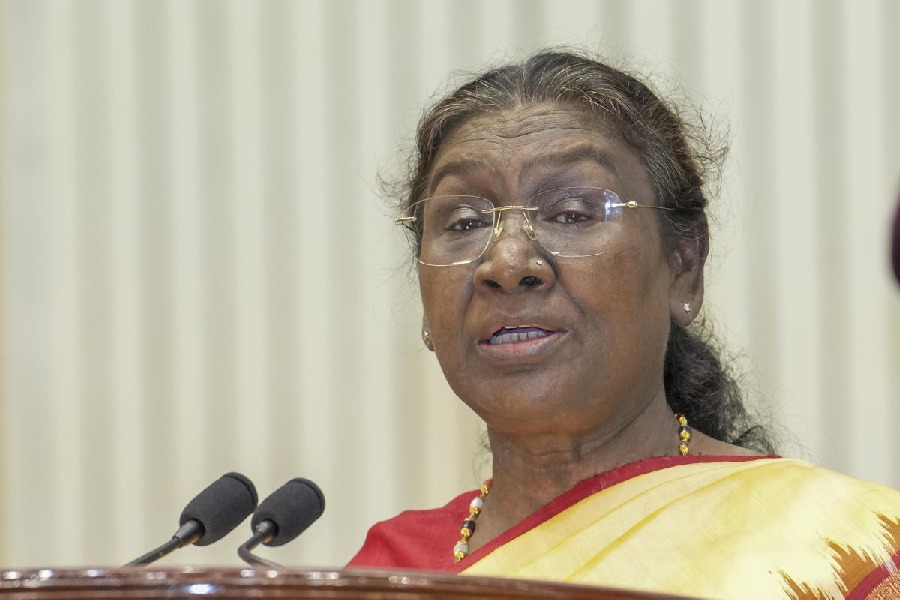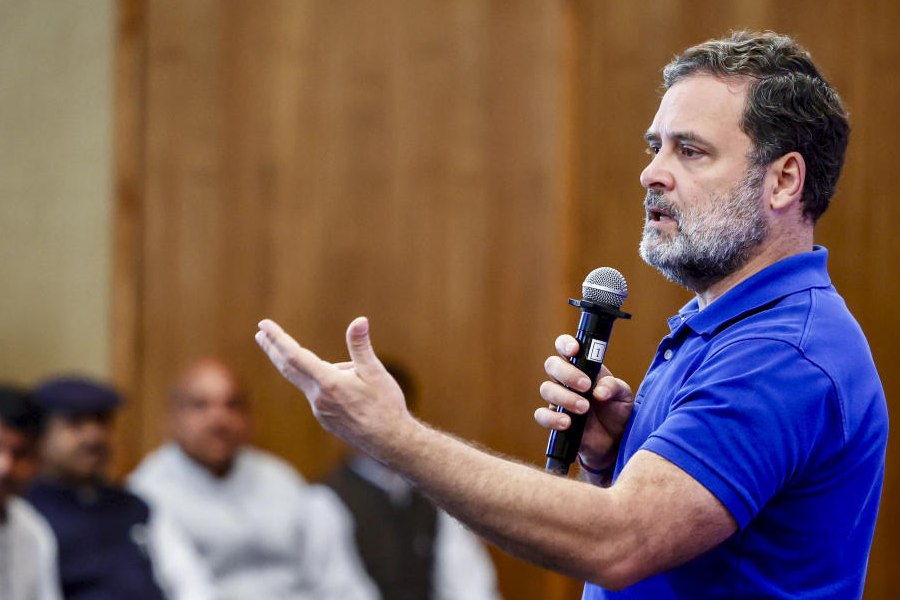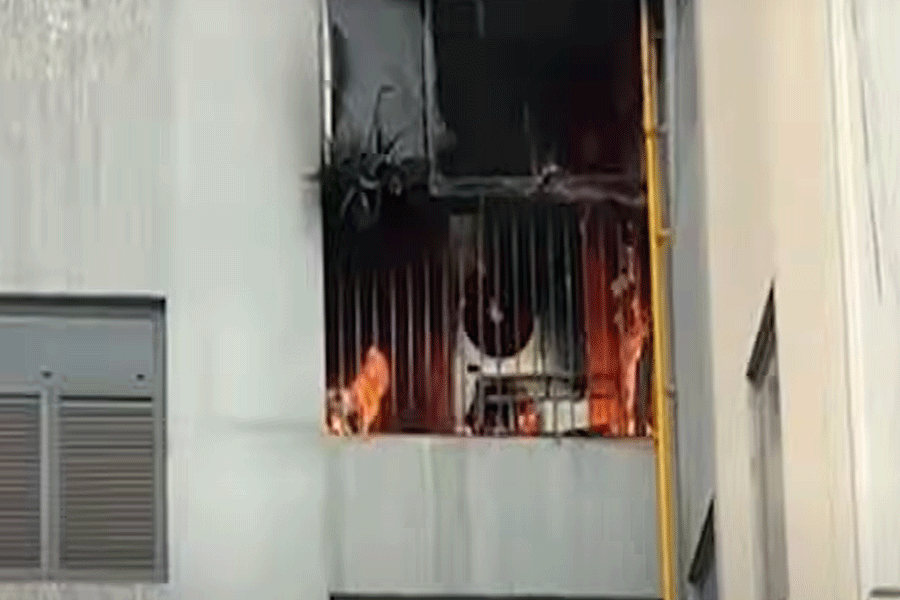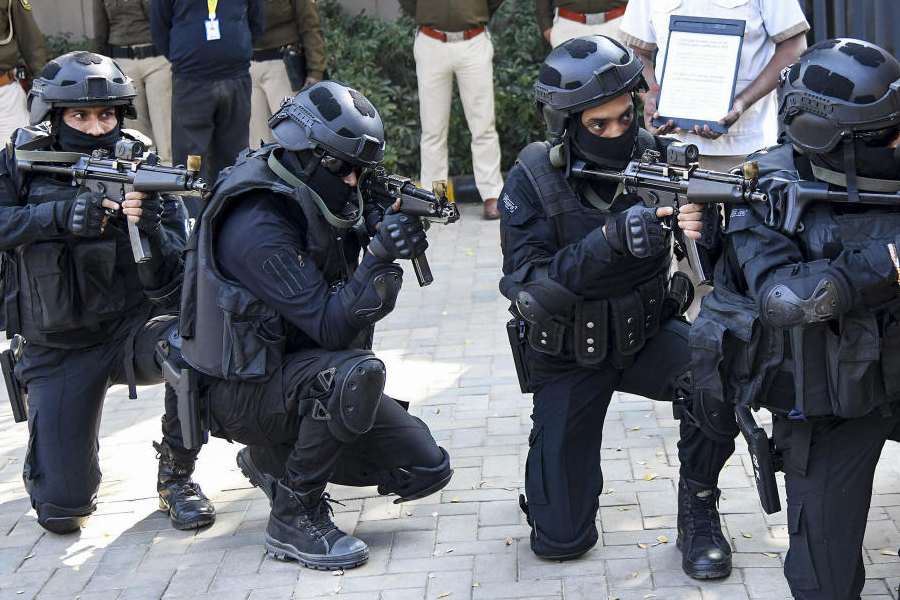President Droupadi Murmu has posed crucial questions to the Supreme Court over its April 8 verdict that fixed timelines for governors and the President to act on bills passed by Assemblies.
Exercising her power under the rarely used Article 143 (1), Murmu said that in the present circumstances, it appeared that questions of law had arisen and they were of such nature and public importance that it was expedient to obtain the opinion of the Supreme Court. The President acts on the advice of the council of ministers.
Article 143 (1) of the Constitution deals with the power of the President to consult the Supreme Court.
The provision says: “If at any time it appears to the President that a question of law or fact has arisen, or is likely to arise, which is of such a nature and of such public importance that it is expedient to obtain the opinion of the Supreme Court upon it, he may refer the question to that court for consideration and the court may, after such hearing as it thinks fit, report to the President its opinion thereon.”
In its April 8 judgment, the Supreme Court had said that neither the President nor the governor had any “pocket veto power” to indefinitely withhold bills passed by a state legislature, as it prescribed timelines of three months and one month for the two constitutional authorities.
Failure to adhere to the prescribed timelines would give the right to the aggrieved state to either move the high court concerned or the Supreme Court, a bench of Justices J.B. Pardiwala and R. Mahadevan had said while ordering “deemed” assent to 10 bills passed by the Tamil Nadu Assembly with effect from November 18, 2023, when they had been presented to governor R.N. Ravi again after his fiat for reconsideration.
Though Supreme Court judgments are challenged by way of review petitions, the NDA government chose to adopt the legal strategy of seeking a presidential reference in the wake of similar cases of non-assent to bills, particularly in the non-BJP-ruled states of Kerala, Punjab and Bengal, that are pending at different stages in the apex court.
Tamil Nadu on Thursday condemned the move to seek a presidential reference, saying it “attempts to subvert the constitutional position already settled” by the Supreme Court in Ravi’s case and other precedents.
The following are some of the key queries raised by Murmu, reproduced verbatim:
• What are the constitutional options before a governor when a bill is presented to him under Article 200 of the Constitution of India?
• Is the governor bound by the aid and advice tendered by the council of ministers while exercising all the options available with him when a bill is presented before him under Article 200 of the Constitution of India?
• Is the exercise of constitutional discretion by the governor under Article 200 of the Constitution justiciable?
• Is Article 361 of the Constitution an absolute bar to judicial review in relation to the actions of a governor under Article 200 of the Constitution?
• In the absence of a constitutionally prescribed time limit and the manner of exercise of powers by the governor, can timelines be imposed and the manner of exercise be prescribed through judicial orders for the exercise of all powers under Article 200 of the Constitution by the governor?
• Is the exercise of constitutional discretion by the President under Article 201 of the Constitution justiciable?
• In the absence of a constitutionally prescribed timeline and the manner of exercise of powers by the President, can timelines be imposed and the manner of exercise be prescribed through judicial orders for the exercise of discretion by the President under Article 201 of the Constitution?
• In light of the constitutional scheme governing the powers of the President, is the President required to seek the advice of the Supreme Court by way of a reference under Article 143 of the Constitution and take the opinion of the Supreme Court when the governor reserves a bill for the President’s assent or otherwise?
• Are the decisions of the governor and the President under Article 200 and Article 201 of the Constitution, respectively, justiciable at a stage anterior into the law coming into force? Is it permissible for the courts to undertake judicial adjudication over the contents of a bill, in any manner, before it becomes law?
• Can the exercise of constitutional powers and the orders of/by the President/governor be substituted in any manner under Article 142 of the Constitution?
• Is a law made by the state legislature a law in force without the assent of the governor granted under Article 200 of the Constitution?
• In view of the proviso to Article 145(3) of the Constitution, is it not mandatory for any bench of this court to first decide as to whether the question involved in the proceedings before it is of such a nature which involves substantial questions of law as to the interpretation of Constitution and to refer it to a bench of minimum five judges?
• ... (Are) the powers of the Supreme Court under Article 142 of the Constitution limited to matters of procedural law or Article 142 of the Constitution extends to issuing directions/passing orders which are contrary to or inconsistent with existing substantive or procedural provisions of the Constitution or law in force?
• Does the Constitution bar any other jurisdiction of the Supreme Court to resolve disputes between the Union government and the state governments except by way of a suit under Article 131 of the Constitution?










